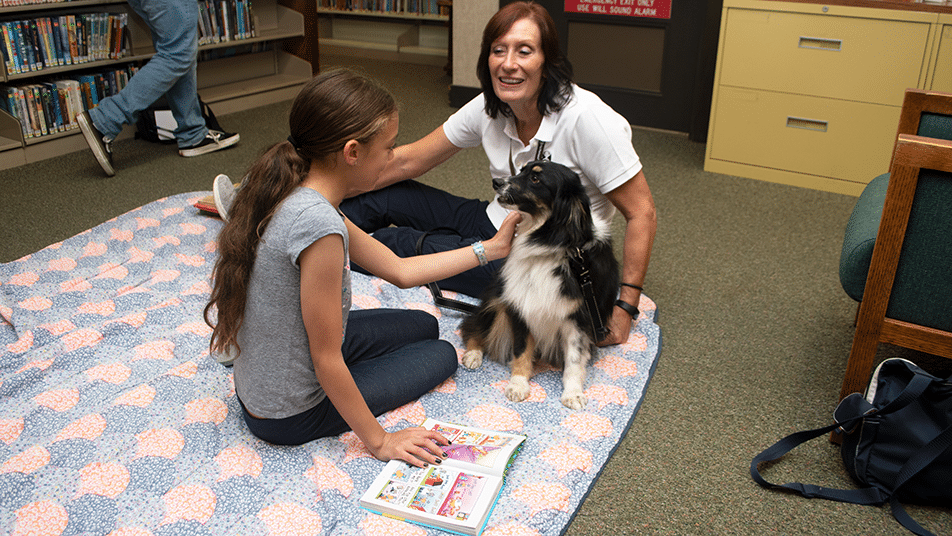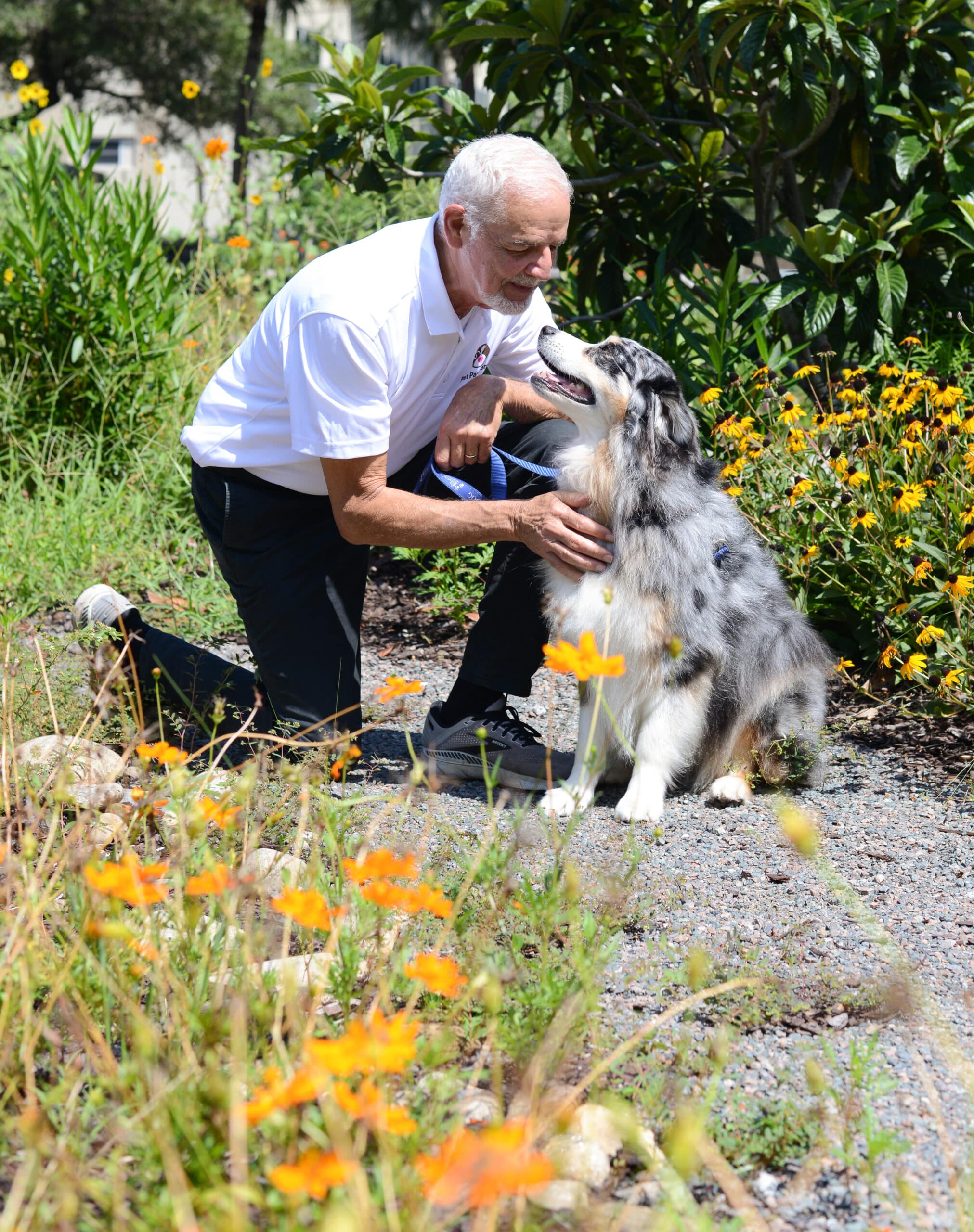Program Requirements
Both ends of the leash, human and animal, must meet the highest standards to volunteer with Pet Partners. If you are at least 10 years of age, learn if you and your pet qualify.


Both ends of the leash, human and animal, must meet the highest standards to volunteer with Pet Partners. If you are at least 10 years of age, learn if you and your pet qualify.


Pet Partners understands that interactions with many species of animals can be therapeutic. We proudly register nine different species of animals for therapy visits, including dogs, cats, horses, rabbits, guinea pigs, rats, birds, miniature pigs, and llamas and alpacas.
Take the next step and apply to be a volunteer therapy animal team with your pet.
 Pet Partners volunteers understand they play an important role in keeping everyone involved in a visit safe: their animal, the client, and themselves.
Pet Partners volunteers understand they play an important role in keeping everyone involved in a visit safe: their animal, the client, and themselves. The Standards of Practice in Animal-Assisted Interventions (AAI) is a publication that offers the most comprehensive guidelines for AAI and prescribe a rigorous set of criteria designed to ensure the safety of therapy animals, handlers, and clients that they interact with. The Standards of Practice can serve as a reference for individuals, facilities, and organizations that are seeking to incorporate best practices. The publication includes five sections addressing standards for handlers, therapy animals, assessment, animal welfare, and risk management.